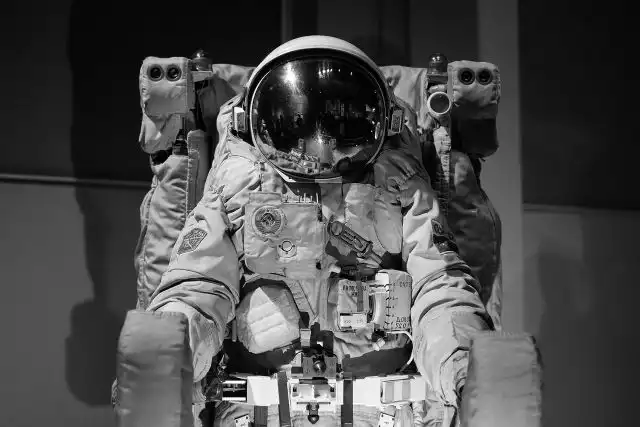Even short trips to space can change an astronaut’s biology

We also wrote a review article with a more futuristic perspective of how better understanding telomeres and aging might begin to inform the ability of humans to not only survive long-duration space travel but also to thrive and even colonize other planets.
Along with research laboratory researches, these searchings for inform us that telomeres are being harmed during spaceflight. While there is still a lot we don’t understand, we do know that telomeres are particularly sensitive to oxidative stress. The chronic oxidative damage that astronauts experience when subjected to room radiation around the clock most likely contributes to the telomeric actions we observe.
As anybody that’s seen “The Martian” understands, plants will certainly play an important function in long-lasting human survival precede. This searching for recommends that plants are maybe more normally fit to withstand the stressors of room than human beings.
NASA picked astronaut Scott Kelly for the agency’s initial 1 year goal, during which he invested a year on board the International Spaceport station from 2015 into 2016. Over the very same time period, his twin bro, Mark Kelly, a previous astronaut and current united state senator representing Arizona, continued to be in the world.
Given that individuals respond in different ways to the special stressors and exposures of area, scientists in space wellness, like me, look for to better understand the human wellness impacts of spaceflight. With such info, we can identify how to assist astronauts remain healthy and balanced both while they remain in area and once they go back to Planet.
My team and I analyzed blood samples gathered from the double precede and his genetically matched double back in the world before, throughout and after spaceflight. We discovered that Scott’s telomeres– the safety caps at the ends of chromosomes, similar to the plastic idea that maintains a shoe lace from fraying– extended, quite suddenly, during his year precede.
We additionally wrote an evaluation write-up with a more futuristic point of view of how much better understanding telomeres and aging could start to inform the capability of human beings to not only make it through long-duration room traveling yet also to flourish and even colonize other worlds. Doing so would certainly need people to replicate in space and future generations to mature precede. If that’s also possible– yet, we don’t know.
Today, with personal, industrial and multinational spaceflight suppliers and leaflets going into the marketplace, we are seeing a new period of human spaceflight. Goals have actually varied from hours, days and minutes to months.
The persistent oxidative damages that astronauts experience when revealed to space radiation around the clock most likely adds to the telomeric reactions we observe.
These results suggest that also short trips, like a weekend break vacation to room, will be connected with changes in telomere size.
What’s specifically intriguing concerning these searchings for is that the Inspiration4 goal lasted just three days. So, not only do scientists currently have regular and reproducible data on telomeres’ action to spaceflight, however we additionally know it happens promptly. These outcomes recommend that also brief trips, like a weekend break vacation to area, will be related to adjustments in telomere length.
These documents are part of the Room Omics and Medical Atlas plan of manuscripts, data, methods and repositories that represent the largest collection ever before set up for aerospace medication and area biology. Over 100 establishments from 25 nations added to the collaborated launch of a wide range of spaceflight information.
These results suggest that it’s not the room station’s microgravity that led to the telomere length changes we observed in the astronauts– other perpetrators, such as enhanced radiation direct exposure, are much more likely.
In our most current research, we examined telomeres from the team aboard SpaceX’s 2021 Inspiration4 goal. This goal had the very first all-civilian crew, whose ages covered four years. Every one of the staff members’ telomeres extended during the goal, and 3 of the four astronauts also displayed telomere shortening once they were back on Earth.
As you grow older, your telomeres reduce as a result of a selection of variables, including stress. The length of your telomeres can serve as an organic indicator of your threat for creating age-related problems such as mental deterioration, heart disease and cancer.
We also created an evaluation article with an extra advanced viewpoint of how better understanding telomeres and aging may begin to educate the capacity of human beings to not only survive long-duration room travel however additionally to flourish and also conquer various other worlds. Doing so would require humans to recreate in room and future generations to grow up in area.
When Scott returned to Planet, however, his telomeres promptly reduced. Over the following months, his telomeres recovered however were still shorter after his trip than they had actually been before he went to space.
My colleagues and I added other work to the Area Omics and Clinical Atlas plan, also, consisting of a paper published in Nature Communications. The research study team, led by Texas A&M biologist Dorothy Shippen and Ohio College biologist Sarah Wyatt, found that, unlike people, plants flown in space did not have longer telomeres during their time on board the International Space Station.
We discovered that while climbing Mount Everest, the mountain climbers’ telomeres were longer, and after they came down, their telomeres shortened. Their doubles that continued to be at reduced altitude really did not experience the same adjustments in telomere size. These results suggest that it’s not the space station’s microgravity that caused the telomere length modifications we observed in the astronauts– other perpetrators, such as raised radiation direct exposure, are more probable.
We measured telomere length before, throughout and after spaceflight and once again located that telomeres were longer throughout spaceflight and after that shortened upon go back to Earth. On the whole, the astronauts had much more short telomeres after spaceflight than they had in the past.
In a separate research study, my team studied a cohort of 10 astronauts on six-month missions aboard the International Space Station. We likewise had a control group old- and sex-matched individuals who stayed on the ground.
Scientists still don’t entirely recognize the wellness impacts of such changes in telomere length. We’ll require a lot more research study to identify just how both brief and lengthy telomeres might influence an astronaut’s long-term health.
As humankind expects going back to the Moon over the coming years, space exploration missions will be a lot longer, with many more area tourists and also area vacationers. This also implies that a wider variety of people will certainly experience the severe environment of area– even more women and people of different ethnicities, ages and health and wellness standing.
1 astronaut Scott Kelly2 research laboratory researches
3 spaceflight
4 telomeres
« EU diplomat imprisoned in Iran kept his sexuality a secret from the regimeZelenskyy to Trump: If you have a plan to end the war, tell us now »
